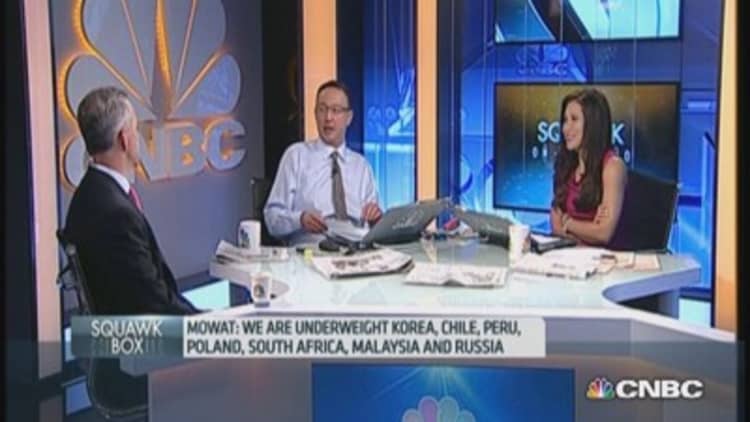The Bank of Japan's (BoJ) stimulus blitz raises the specter of currency wars as a rapidly weakening threatens the competitiveness of export-driven economies, say strategists.
"Whenever you have these kinds of disruptive moves by central banks, there's always going to be fall out effects," said Boris Schlossberg, managing director of FX strategy at BK Asset Management.
Markets were caught off guard by the BoJ's announcement on Friday that it would expand purchases of exchange-traded funds (ETFs) and real estate investment trusts, extend the duration of its portfolio of Japanese government bonds (JGBs), and increase the pace of monetary base expansion.
Read MoreBOJ surprises with fresh stimulus, Nikkei surges 5%
The yen plunged nearly 3 percent against the U.S. dollar on Friday and extended its selloff on Monday, falling to a fresh-seven year low in early Asian trade. It last traded at 112.71.
Yen vs won
"The hottest currency war today is Japan vs Korea. That's probably the one to keep an eye on. The yen-won cross rate is very sensitive as Japan and Korea compete in a lot of key areas," said Sean Callow, senior currency strategist at Westpac.
The Japanese currency has fallen around 20 percent against the won since the BoJ launched its unprecedented stimulus program in April 2013.

Currency strategists say the BoJ's actions could encourage the Bank of Korea (BoK) to become more defensive against local currency strength through intervention in the foreign exchange market or a rate cut.
"We see increasing risks that it may cut rates by 25 basis points to 1.75 percent in coming months," Young Sun Kwon, economist at Nomura wrote in a note late Friday, highlighting that Korea's export momentum already looks weak.
Exports grew 2.5 percent in October from a year earlier, following a revised 6.9 percent gain in September, provisional data from the trade ministry showed.
Read MoreSouth Korea central bank cuts interest rates to boost economy
South Korean authorities have been vocal about the negative impact of a depreciating yen. In late-October, President Park Geun-hye said low economic growth, low inflation and the weak yen are three main risks facing South Korea's economy and corporations.
Asia's other exporters
Other major exporting nations in Asia such as Taiwan and China may act to limit strength in their currencies.
"It remains to be seen whether Chinese exporters get upset about weakness in the yen and whether Chinese authorities will guide the currency lower," said Callow.
Read MoreIs China's export boom fake?
The People's Bank of China on Monday fixed the yuan mid-point at 6.1525, weaker than Friday's mid-point of 6.1461 and previous close of 6.1135.
Geoffrey Yu, foreign exchange strategist at UBS agrees that South Korea will "have an issue" with yen weakness, but doesn't think Chinese authorities will be as concerned.
"The PBOC and BOJ work quite well each other," he said. "I think China would be much more concerned about where dollar-Thai bhat and Vietnamese dong trade."


